Best Baby Formula for Premature Babies
51 hours of research 3 minute read

Bringing a new life into the world is a remarkable journey, filled with anticipation and joy. However, when a baby decides to make an early debut, it comes with a set of challenges that can be both daunting and emotionally taxing for parents. Premature birth, or preterm birth, occurs when a baby is born before completing 37 weeks of gestation. This can happen for a myriad of reasons, ranging from multiple pregnancies and maternal health issues to unknown causes. Premature babies, affectionately known as preemies, often face health challenges that necessitate special attention, especially when it comes to their nutrition. In this blog article, we'll look more closely at what premature birth means, explore why it happens, talk about the difficulties it brings, and guide parents through the options for special formulas to help them choose what's best for their little ones.
What is Premature Birth?
Premature birth, or preterm birth, is the term used to describe the early arrival of a baby. It occurs when a baby is born before completing the 37th week of pregnancy. Typically, a full-term pregnancy lasts about 40 weeks. Premature birth limits the time the baby has to develop in the womb, increasing the risk of various health complications.
It's worth noting that there are sub-categories of preterm birth based on gestational age, as outlined by the World Health Organization:
- Extremely preterm (less than 28 weeks)
- Very preterm (28 to less than 32 weeks)
- Moderate to late preterm (32 to 37 weeks)
What Causes Premature Birth?
The reasons behind premature birth can be diverse, and understanding them is crucial for both parents and healthcare providers. Several factors contribute to premature birth, including:
- Multiple Pregnancies: Carrying twins, triplets, or more can strain the mother's body, leading to premature birth.
- Maternal Health Issues: Conditions such as high blood pressure, diabetes, or infections can contribute to premature labor.
- Previous Preterm Births: Women with a history of preterm births face a higher risk of experiencing it again.
- Age Factor: Teenagers and women over 35 are more susceptible to premature births.
- Lifestyle Factors: Smoking, drug use, and insufficient prenatal care elevate the risk of preterm birth.
The Challenges of Premature Birth

Babies born too early, before their organs—especially the lungs and brain—are fully developed, often face unique health challenges. These can include problems with breathing, struggles to maintain body temperature, difficulties with feeding, and an increased susceptibility to infections. The delicate nature of preemies frequently requires specialized care in neonatal intensive care units (NICUs), where healthcare providers work hard to support these tiny warriors for a healthy start.
What is a Premature Formula?
Premature formula, also known as preterm or preemie formula, typically refers to a specialized infant formula designed to meet the unique nutritional needs of premature or preterm infants. Premature babies often have different nutritional requirements compared to full-term infants because they are born before their organs, including the digestive system, have fully matured. Premature formulas are specially formulated to provide essential nutrients in appropriate proportions for the development and growth of preterm infants. These formulas may contain higher amounts of certain nutrients, such as protein, calories, vitamins, and minerals, to support the accelerated growth and development needs of premature babies.
It's important to note that the use of premature formulas is typically recommended under the guidance of healthcare professionals, such as neonatologists or pediatricians, who can assess the specific nutritional needs of the premature infant and prescribe an appropriate formula.
Types of Preemie Formula
There are different kinds of formula for preemies, each made to help with the special needs and challenges that little preterm babies might have:
1. Amino Acid-Based Formulas
For tiny babies born early who struggle with cow's milk allergies or find it hard to digest fat, doctors might suggest amino acid-based formulas. Instead of using milk protein, these formulas use simpler proteins called amino acids.
2. Lactose-Free Formulas
Some little ones born early can't handle the sugars in cow's milk, so there are special formulas made just for them. These are called lactose-free formulas. But here's the thing to know: not all formulas without lactose are free from dairy proteins.
3. Hypoallergenic Formulas
There are special baby formulas for newborns who can't handle the protein in cow's milk. These are called hypoallergenic formulas. They break down the milk protein into smaller and softer parts, making it easier for babies to digest. Studies say using hypoallergenic baby formula can stop certain allergies and help babies who have trouble with milk protein.
Choosing the Best Preemie Formula

The significance of choosing the right formula for premature babies cannot be overstated. The nutritional content of premature formulas is tailored to support the rapid growth and development that these babies need to catch up with the developmental milestones of their full-term counterparts. Opting for the wrong formula can potentially lead to nutritional deficiencies, digestive issues, or other complications that may impede the delicate journey of a premature baby towards thriving health.
Choosing the best formula for a premature baby involves considering several crucial factors, all aimed at providing the most suitable nutrition for their unique needs:
- Nutritional Content: A well-rounded formula should include essential nutrients such as proteins, fats, carbohydrates, vitamins, and minerals. Ensuring a balance of these elements is fundamental to supporting the healthy growth of a premature baby.
- Caloric Density: Premature babies often require more calories to fuel their rapid growth. Opting for a formula with higher caloric density helps meet these increased energy requirements, providing the necessary sustenance for their developmental journey.
- Protein Source: High-quality proteins are paramount for the development of muscles and organs in premature babies. A formula with a reliable protein source ensures that these tiny warriors receive the foundational building blocks for their growth.
- Ease of Digestion: The sensitive digestive systems of premature babies need formulas with proteins and fats that are easy to digest. It's important to avoid tummy troubles for the overall health of preemies as they go through their first days.
- Additives and Supplements: Some premature formulas come fortified with additional nutrients like iron, calcium, and DHA. Consulting with healthcare providers is essential to determine if these additives are necessary to address the specific needs of a premature baby.
Popular Baby Formulas for Preemies
We've put together a list of popular choices for preemies that are easy to digest and full of essential nutrients. Take a look at these trusted go-to formulas and pick the one that suits your little one best!
✓ 100% Organic Formula
✓ No sugar, no corn syrup, no soy
✓ GMO free formula
✓ HiPP's original formula
Check Price✓ Hydrolyzed milk proteins reduce allergic reactions
✓ No sugar, no corn syrup, no soy
✓ Contains Probiotics & Prebiotics
✓ Popular for constipated babies
Check PriceHolle Bio Stage PRE Best Seller
✓ Demeter biodynamic certified
✓ No sugar, no corn syrup, no soy
✓ Clean formula ingredients
✓ Holle's most popular cow formula
Check PriceHolle Goat Stage Pre Best Seller
✓ 100% Organic Formula
✓ No sugar, no corn syrup, no soy
✓ Clean formula ingredients
✓ Popular for babies allergic to cow's milk
Check PriceTips for Feeding Premature Babies with Formula
Feeding a premature baby with formula is a delicate process that requires patience, care, and adherence to specific guidelines. Here are additional tips to consider, ensuring a smoother and more nurturing feeding experience for both parents and their tiny miracles:
- Feeding Position: Keeping the baby in a semi-upright position during feeding is advisable. This positioning helps reduce the risk of choking and reflux, providing a safer and more comfortable experience for the baby.
- Slow Flow Nipples: Choose slow-flow nipples to mimic the slower flow of milk from the breast. This can help prevent feeding difficulties and reduce the risk of aspiration.
- Paced Bottle Feeding: Practice paced bottle feeding to allow your baby to have more control over the feeding process, promoting better digestion and reducing the risk of overfeeding.
- Burp Frequently: Premature babies may swallow more air during feeding due to their delicate respiratory systems. Taking breaks to burp the baby helps minimize discomfort and promotes smoother digestion.
- Skin-to-Skin Contact: Skin-to-skin contact is not only a beautiful way to bond with a premature baby but also has physiological benefits. It can help regulate the baby's body temperature and heart rate, fostering a sense of security and comfort.
- Monitor Weight Gain: Regularly monitoring the weight gain of a premature baby is essential. It serves as an indicator of their overall health and development. If there are concerns or deviations from the expected growth trajectory, consulting with healthcare providers is paramount
Premature Baby Formula

How often should I feed my preemie?
To create a feeding schedule for your preemie, talk to the nurses before leaving the NICU (Newborn Intensive Care Unit).
Premature babies usually eat every 2 1/2 - 4 hours. Watch for signs like restlessness or movement if it's been 2-3 hours since the last meal. Ask your doctor about waking your baby if it's been more than 4 or 5 hours between feeds.
How much should I feed my preterm baby?
If your baby weighs about 4 1/2 lbs., they usually need 12-15 ounces of formula or milk each day. Count wet diapers – your baby should have 6-8 every day. Formula-fed babies typically take 2-3 ounces every 3-4 hours after leaving the hospital. Adjust if your baby finishes quickly but seems hungry. Breastfed babies might feed longer or more often. The doctor will check your baby's weight to make sure they're growing well.
Is it okay to use a regular formula for my premature baby?
While a regular formula is good, there are special formulas for premature babies with more calories and protein to meet their special needs.
How do I know if my baby has digestive sensitivity?
If your baby is fussy, has gas, or has diarrhea, they might have a tummy issue. Talk to your doctor to find the right formula if you suspect a problem.
When can I switch to a regular formula?
The transition to a regular formula depends on your baby's developmental milestones and guidance from your healthcare provider. Seek personalized advice from your pediatrician to determine the best time for this transition.
Can I feed my preemie the same way as full-term babies?
Typically, premature infants follow a comparable feeding routine to full-term babies once they're home. Both breast milk and formula are crucial sources of nutrition for all infants. However, when it comes to introducing solid foods, it's advisable to wait for premature babies to be a bit older. Treat your baby as if they were born on their due date, considering their adjusted or corrected age.
Premature Baby Formula Feeding
Taking care of a premature baby involves picking the right formula, which is super important. Understanding the challenges that come with being born too early, knowing how crucial it is to choose the right formula, and following feeding tips all help the little ones grow well. Working together with healthcare providers is key to making sure premature babies get the special care they need not just to live but to do really well. By making smart choices and giving lots of care, parents become big supporters for their premature babies, helping them grow up healthy and strong. Caring for a premature baby is a journey that shows how strong and tough both the little ones and their caregivers are, lighting up a path full of hope and good things.
Most Popular Formula for Premature Babies
References:
- https://www.who.int/news-room/fact-sheets/detail/preterm-birth
- https://www.drugwatch.com/baby-formula/preemie/
- https://www.verywellfamily.com/how-long-should-my-baby-use-preemie-formula-2748587
- https://handtohold.org/feeding-preemie-infant-formula-101/
- https://kidshealth.org/en/parents/preemies.html
- https://www.unitypoint.org/news-and-articles/caring-for-a-premature-baby-feeding


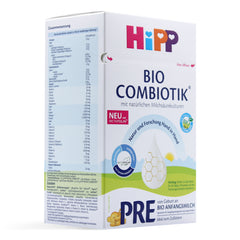
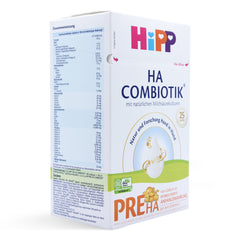
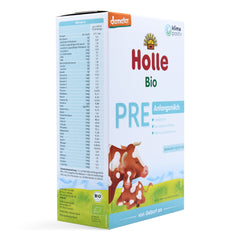
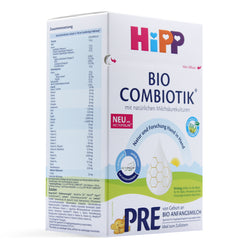
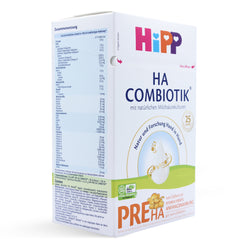
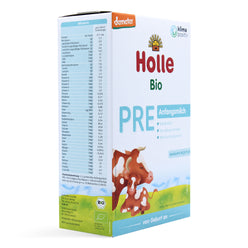
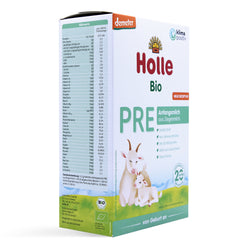






Caroline C -
What would you recommend for parents who have a premature baby and are unsure which formula to choose? When our little one arrived early, it was a whirlwind of worry and decisions. We quickly realized how crucial it is to choose the right formula to support their unique needs. Preemies require extra nutrients to catch up on growth, and it’s not just about feeding — it’s about finding a formula that helps them thrive.
For us, we worked closely with our pediatrician to pick a formula that had the right amount of calories and nutrients for our baby’s development. We also learned that feeding slowly and watching for signs of discomfort was key, especially in those early days when everything felt so overwhelming.
One piece of advice we’d share is to trust the process, even when it feels like slow progress. It’s not easy, but every little milestone makes you stronger as a family. And don’t be afraid to reach out for help — your baby’s health and growth are the top priority! 😊 You’ve got this, parents!
Edmond B -
I was really in shock when we were on the way to the hospital and my wife had a premature birth. Concern filled me, and at the same time my anxiety heightened too. It was a successful delivery, but we have to consider a formula that would help our premie baby thrive. We heard great things about HiPP HA and Holle PRE, but we are still confused about which path to take. Both are approved by our pediatrician, and it is up to us to try them. Would anyone let us know which would be a great go-to formula for a premie? It would really help us if you shared your story with us.
Prince D -
I hear so many different opinions on breastfeeding vs. formula, especially when it comes to premature babies. As a mom, I remember how overwhelming it felt trying to figure out what was best for my preemie, especially after being discharged from the NICU. Some people insisted breast milk was the only option, while others reassured me that specialized formulas were just as beneficial. What helped me most was trusting our pediatrician and watching my baby thrive on a preemie formula tailored to her needs. It’s comforting to know there are so many quality options out there, especially organic and hypoallergenic ones. I truly believe the “best” choice is the one that works for your baby and brings you peace of mind. What do you think?